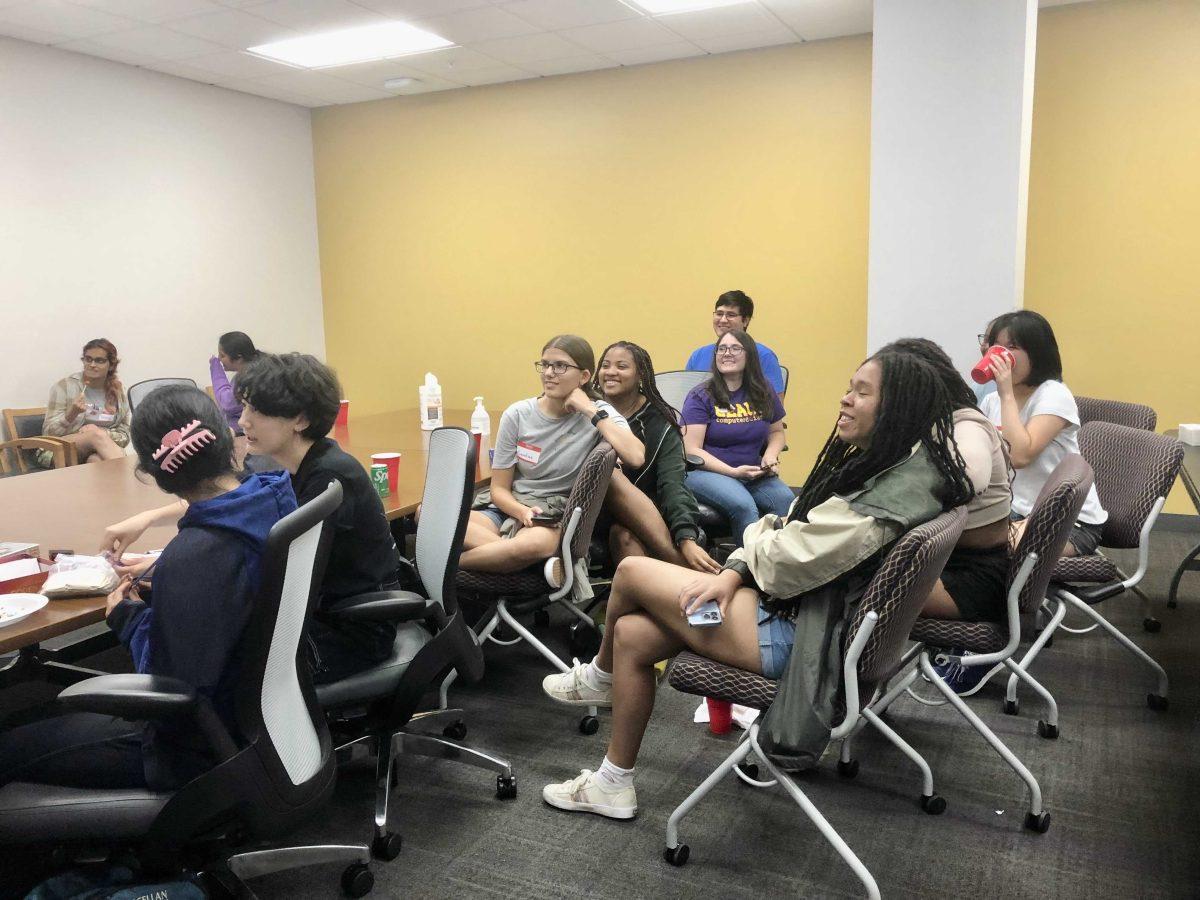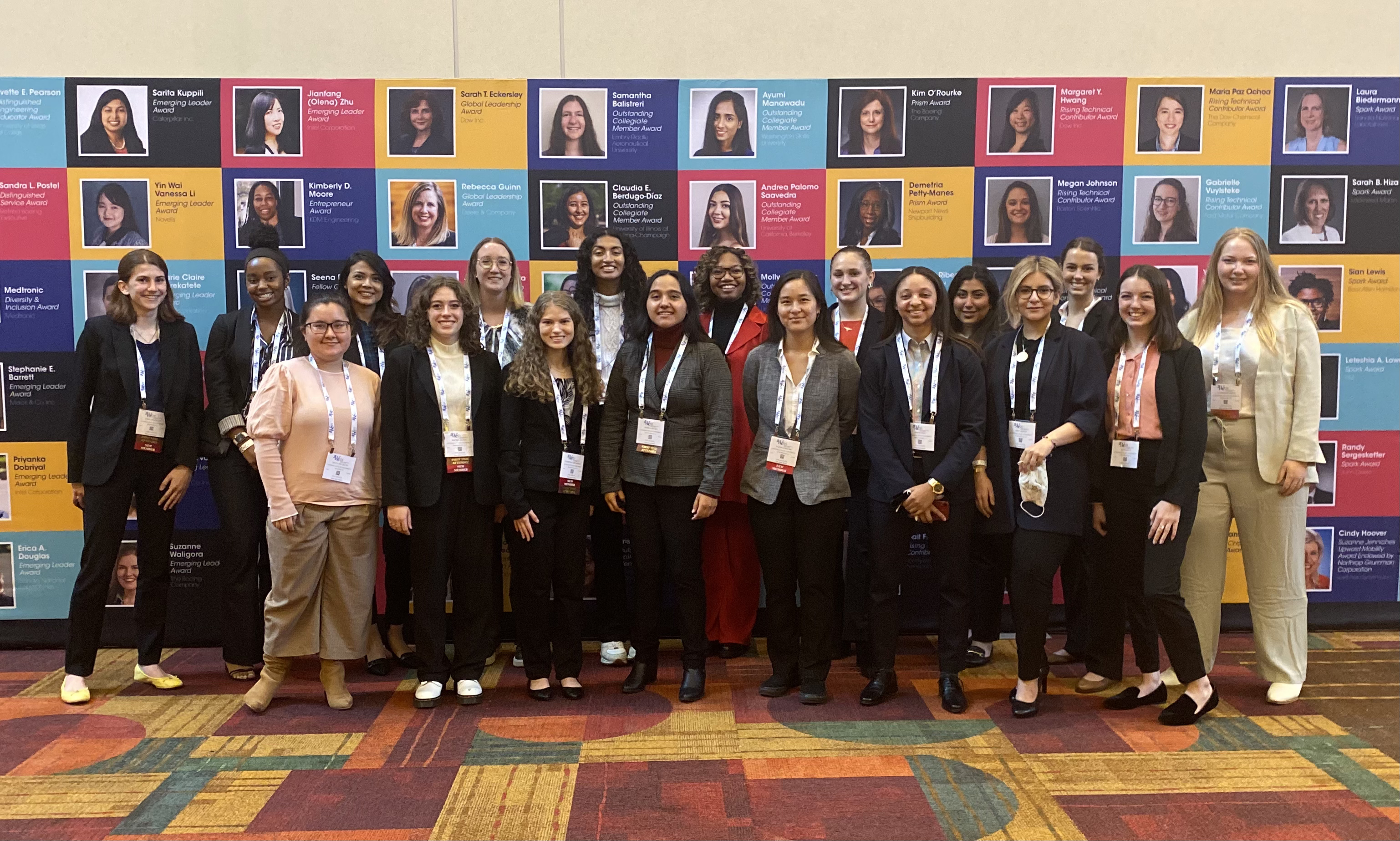Chemical engineering senior Haley Fuller has been around STEM her entire life. Despite coming from a family of engineers, Fuller will be the first female engineer in her family when she graduates.
Engineering and other STEM subjects are among the most male-dominated majors, with more women entering the field in recent years. Still, women’s enrollment in these disciplines remains low.
According to a table found on LSU’s website that breaks up each department by gender for the fall 2022 semester, women make up 706 of the 3,134 students in the engineering department or less than 23% of the college.
Fuller enjoys her major but has experienced backlash from men in her field, including a professor.
“I actually had a discrimination remark made towards me my sophomore year, telling me that I’d be better off not in engineering because I’m a woman, and all kinds of other things,” Fuller said, noting that the professor who made these comments no longer works at LSU.
The professor would often put down female students and disregard their questions, Fuller said.
“I know a lot of other women have had that same issue. Anytime a question was brought up, [the professor] would completely ignore it if it was a woman who asked. But if a guy asked the same question, it was the best question,” Fuller added. “So that class, I ended up dropping… It was very frustrating.”
Fuller has been interning at the Department of Energy since January. While working at the headquarters in New Mexico, she noticed that she was surrounded entirely by men.
“I was the only female intern. And then the one other female engineer that like actually is working at that site was on maternity leave. So I was pretty much the only woman there,” she said.
Engineering classes at LSU have a large male presence, and Fuller says that some of the introductory engineering courses can be made up of up to 90%-95% male students.
Fuller is the outreach volunteer chair for the Society of Women Engineers, an organization that works to empower female students in the male-dominated engineering world. Clubs like the Society of Women Engineers are where she sees the most female students come together.
“Empowering women in STEM is one of the biggest missions of [The Society of Women Engineers],” Fuller said. “So as executive board members, that’s kind of our job to be kind of that guiding light for all of the women in engineering… I mean, there’s guys everywhere. It’s a good group to go to – just women, you know, getting to hang out outside of school.”
Industrial engineering sophomore Ana Alvarado serves as the Society of Women Engineers’ membership chair. Like Fuller, Alvarado has noticed men take up the majority of her classes.
“Industrial is one of the smaller departments, so I don’t see that many people anyway on a normal day, but there [is] a grand majority male, and I don’t think that’s going to change anytime soon,” Alvarado said.
Alvarado, who is Hispanic, believes being a “double minority” in STEM is rewarding and motivates her to encourage other women to pursue engineering.
“Even though I know it’s more difficult… to thrive simply because of gender norms, I think that just motivates me more to work harder, and push those boundaries too, and also encourage other women to get in the field,” Alvarado said.
While Alvarado hasn’t experienced any backlash from others like Fuller, she has noticed that sometimes the hardest criticism comes from herself.
“I feel like it’s more of like in your own head, you make up all of these ideas on how people perceive you, even if [you] haven’t directly faced [backlash] from someone,” Alvarado said.
The Society of Women Engineers has multiple events that Alvarado says cater to female engineers. In the spring, they host a networking event called Women Impacting Success in Engineering (WISE), where female engineers from local companies are invited to dinner with current engineering students. The club is also working on programs to introduce engineering to primary-age children and help high schoolers who are interested in STEM with the transition into college.
Despite being the minority in her field, Alvarado believes women in engineering shouldn’t be underestimated.
“I think [men in engineering] need to be prepared to see how tenacious we women can be, like when we want something we will do whatever it takes to do it – and an engineering degree is no different,” she said.
Angela Guidry is the director of Diversity, Equity and Inclusion in the College of Business and serves as the faculty adviser for the Women in Business club. As faculty adviser, she assists the organization in connecting with professional organizations and accounting firms.
Of the 1,727 business undergraduates enrolled for fall 2022 at LSU, 713 are women, or around 41%. But according to an article by Quantic School of Business and Technology, women made up only 8.1% of Fortune 500 company CEOs in 2021.
The Women in Business club started in the summer of 2021 and works to provide leadership experience to members, build their self-confidence and offer a solid peer support system to female students so they can be prepared to enter the corporate world.
“We’re hopefully [helping female students] set themselves up for success so when they do graduate from LSU, they can walk boldly through the doors through whatever corporate company they choose,” Guidry said.
Guidry says that the club believes in an “if you can see it, you can be it” mentality, which is why they try to bring in female entrepreneurs, business owners and CEOs to talk to members and offer advice.
“We want the Women in Business members to be able to see themselves as being in [top management positions], or being a CEO,” Guidry added.
Along with meetings, Guidry emphasizes the club’s role in going beyond professional development by helping foster connections among female students and providing them with the opportunity to create lifelong friendships.
While women are still the minority in top corporations, Guidry thinks that there is a shift in the way women are perceived in the business world.
“I think that you may still have some organizations that may have the boys club… or more men running these organizations, but I still think that should not stop any female from applying to these companies, or positioning themselves to be promoted within those companies,” Guidry said.
Computer science senior Aliza Siddiqui is the president of the Women in Computer Science club, an organization that hasn’t been active since the start of the COVID-19 pandemic. Siddiqui revived the club this semester after reflecting on the support she wished she had when she entered college, including a place for connections and open discussion among women.
Computer science at LSU falls under the department of engineering. Of the 526 students enrolled as a computer science major this semester, only 83 are women, making up less than 16% of the major. Still, Siddiqui has seen an improvement in women enrollment.
“It’s definitely becoming better. I would say the ratio is now 75% male to 25% female [in my classes], whereas if I talked to some of my professors, they used to say that there would be like three or four girls in their classes,” Siddiqui said.
Like Alvarado, Siddiqui has experienced people making passive remarks about being a woman in her field.
“[There is] definitely underestimation, like ‘oh, you’re doing computer science, good luck with that’… ‘like, let’s see if she can actually do this.’”
Siddiqui says the Women in Computer Science club has many plans for the upcoming year to help female students. She plans to host coding workshops, bring in female guest speakers who hold tech leadership positions and create safety circles where the students can discuss how to respond to any difficult situations in the workplace they may encounter.
Siddiqui encourages women to keep persevering in their field, even if they are the minority.
“If you have passion about something, but you feel like you are failing at it… that doesn’t mean that you shouldn’t do it,” Siddiqui said. “There is no template for being a woman in science.”






